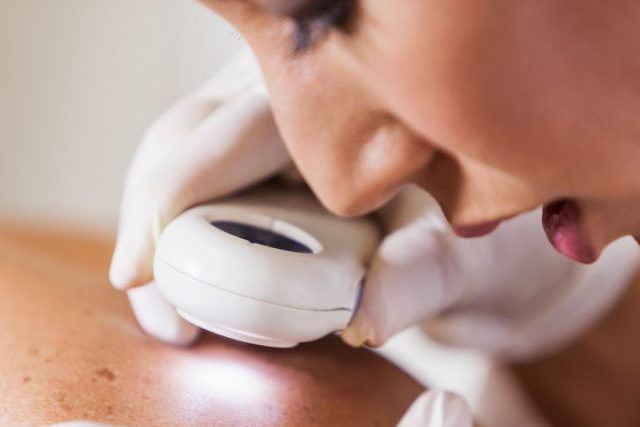Is This Mole Cancerous?
Skin cancer is a serious health problem, and patients who have had extensive, unprotected sun exposure throughout their life may have an increased risk of developing cancer. One primary benefit of skin cancer is that it is easily diagnosed in the earlier stages as long as patients are diligent in evaluating moles and other skin growths that may be indicative of cancer. While most moles are benign throughout one’s life, changes to the mole’s shape, size, and color may be of concern.
What is a mole?
A mole, medically known as nevus, is an area where there are extra melanocytes. These are often benign areas of pigmentation that may be flat or raised. While not all moles can develop into cancer, they still need to be noted and evaluated regularly when changes occur. Changes to a mole may be indicative of skin cancer, specifically melanoma. Melanoma is the most dangerous form of skin cancer and needs to be diagnosed early enough for successful intervention.
What happens if a mole is cancerous?
If a dermatologist at Florida Academic Dermatology Center finds that a mole has cancer cells through a biopsy, the dermatologist will schedule an appointment with the patient to discuss the next steps. In many cases, patients with melanoma may ask about surgical extraction of the cancerous cells and mole through a treatment known as Mohs micrographic surgery. This is the most effective treatment for most of our patients. Patients can also ask about more traditional methods of treating cancer, such as chemotherapy and radiation. These methods are typically recommended to patients who may have experienced spreading of their cancer.
Are you concerned about cancerous moles?
If you believe that changes in a mole on the body may indicate a serious health concern, the team of Florida Academic Dermatology Center in Coral Gables, FL encourages patients to visit the practice to have a skin cancer screening performed. Drs. Kerdel, Don, and Neil welcome new and existing patients to schedule their appointment at the first sign of trouble. Call (305) 324-2110 today to request a visit at 475 Biltmore Way, Suite 207.
